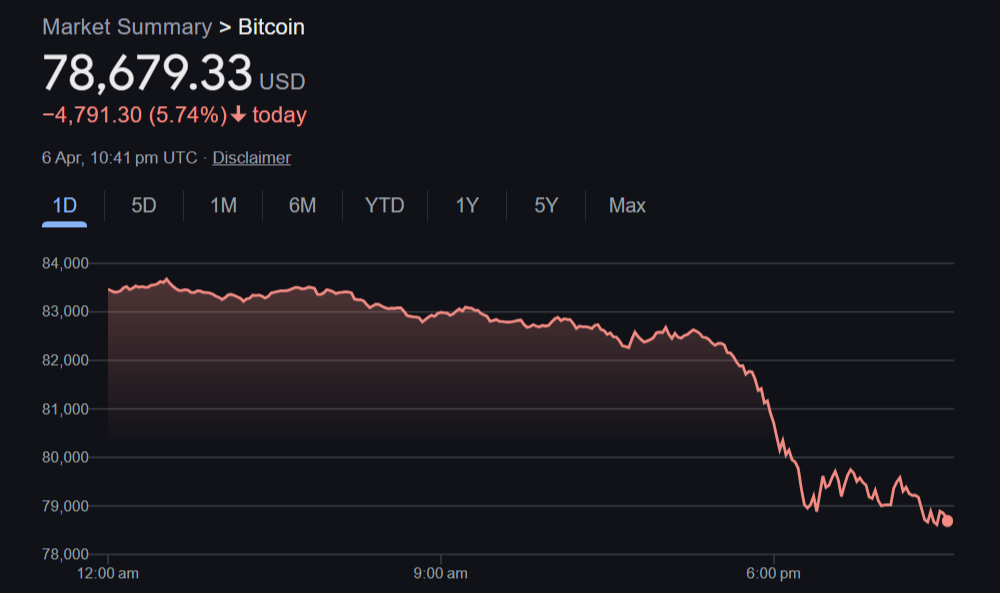Bitcoin recently dropped below the US$79,000 (A$129,266.62) mark, a significant event in the cryptocurrency world. This decline was primarily triggered by escalating global trade tensions, including new tariffs imposed by the United States and retaliatory measures from China.
These tensions caused uncertainty on financial markets, leading investors to sell risky assets like Bitcoin. Over the weekend, Bitcoin's price fell sharply, reaching a low of $78,964 on some exchanges. This marked a 7% drop from its previous peak at $86,000.

Another factor contributing to Bitcoin's decline was the liquidation of leveraged positions.
In the cryptocurrency market, many traders use borrowed money to amplify their investments. When Bitcoin's price started to fall, these traders were forced to sell their holdings to cover losses, creating a domino effect.
In just 24 hours, over $597 million worth of cryptocurrency positions were liquidated, with Bitcoin accounting for $203 million of that total. This wave of liquidations further pushed the price downward.
The drop also highlighted Bitcoin's vulnerability during periods of low trading activity, such as weekends. With fewer buyers and sellers active, the market becomes more susceptible to sudden price swings.
This weekend's decline was exacerbated by a lack of liquidity, allowing bearish traders to dominate the market. Additionally, technical indicators showed that Bitcoin had broken below key support levels, signaling a bearish trend.
Despite the recent downturn, some analysts believe this could be a temporary setback. Bitcoin has experienced similar corrections before bouncing back.
Factors like increasing global liquidity and the potential easing of inflation could support a recovery in the coming weeks. However, the current bearish sentiment suggests Bitcoin may face further challenges before stabilising.
As of 8:36 am AEDT on April 7, 2025, Bitcoin's price was approximately $78,835. This reflects the continued struggle to regain momentum after weekend losses.
While the cryptocurrency market remains volatile, Bitcoin's long-term prospects often depend on broader economic trends and investor sentiment.



